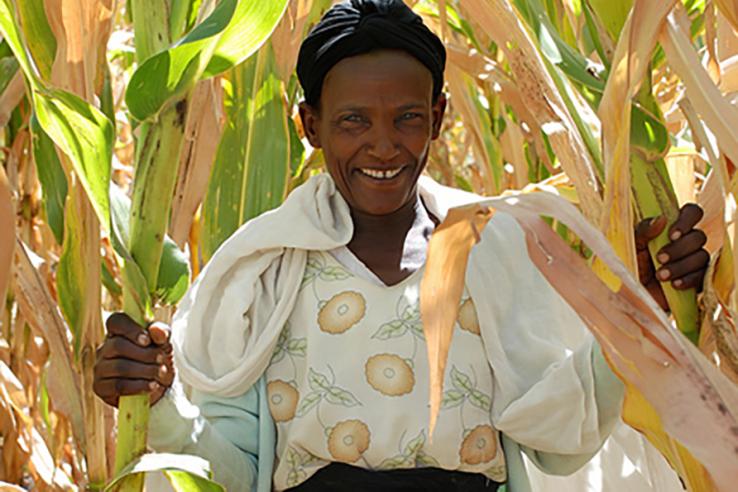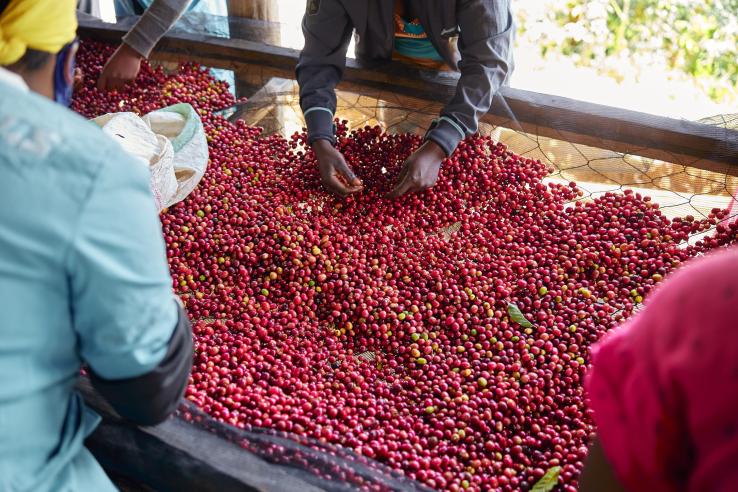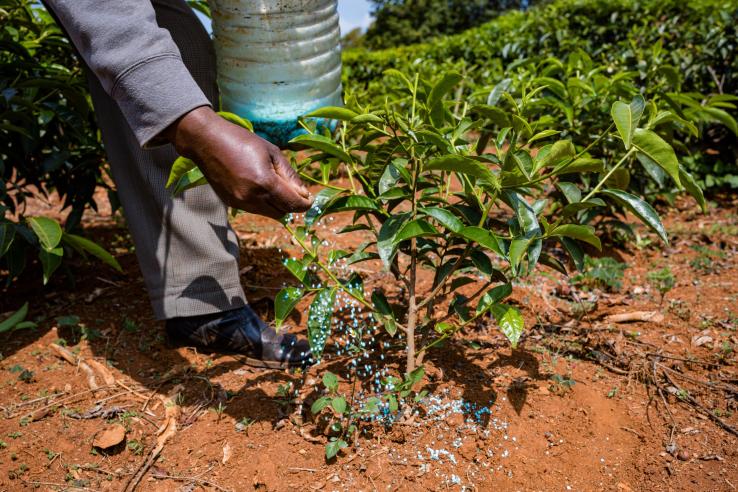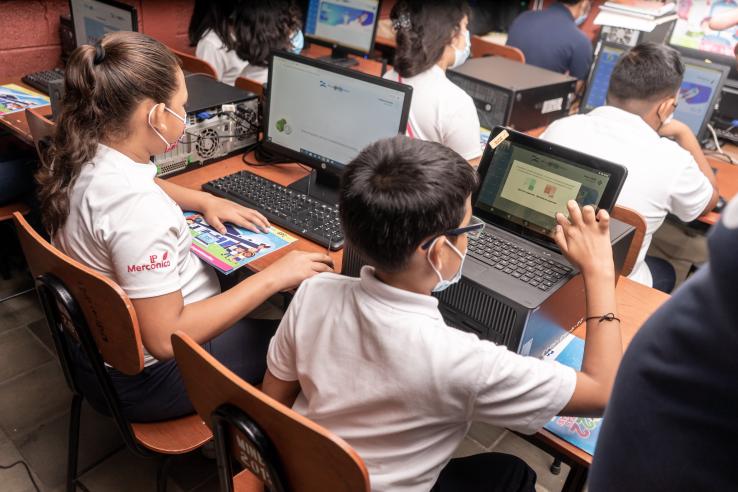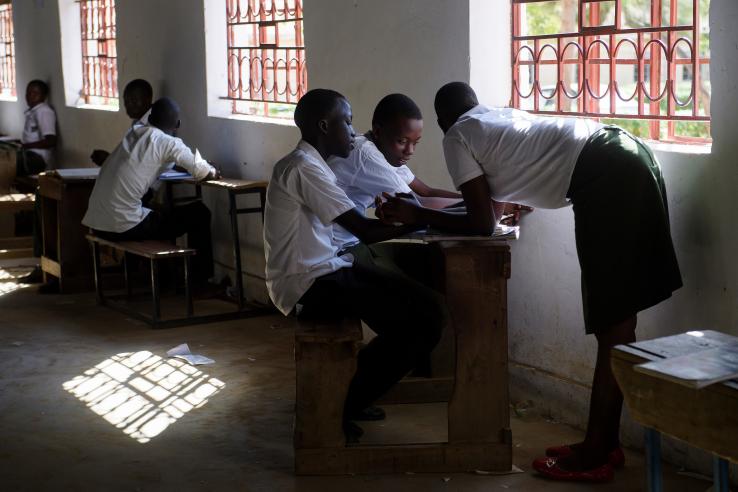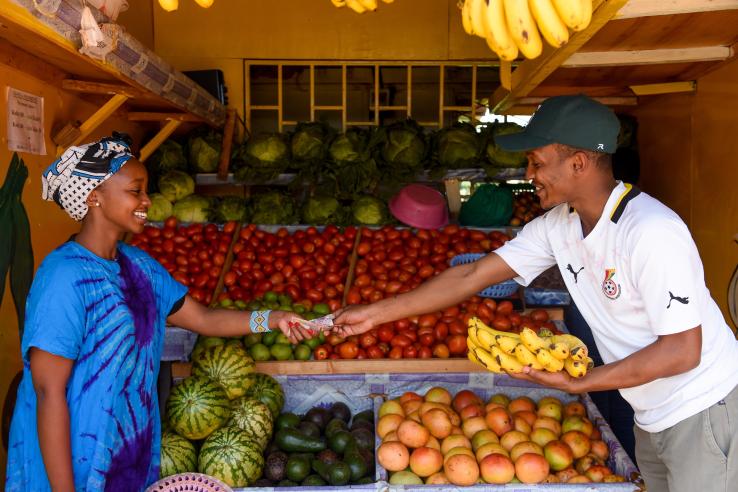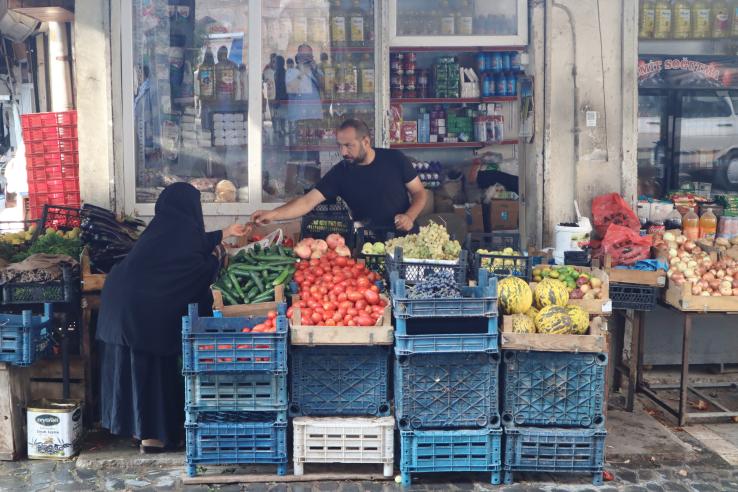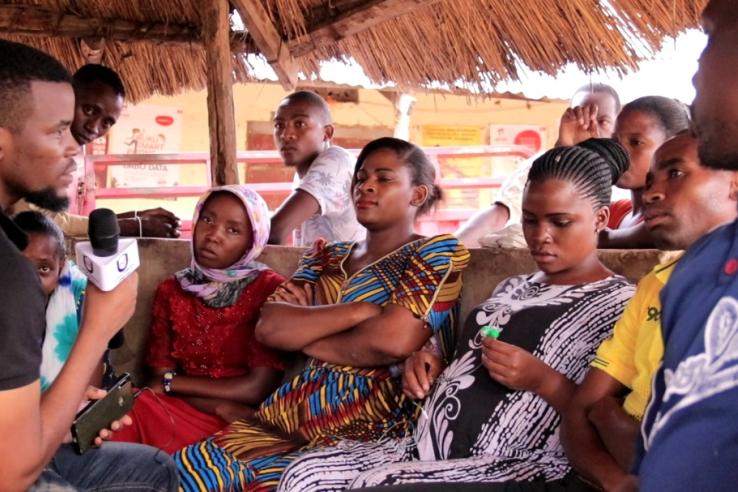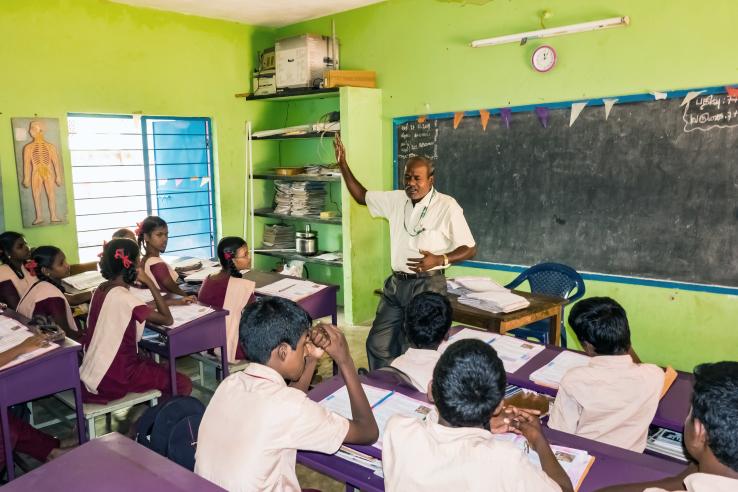Displaying 6106 - 6120 of 8318
Evaluation
Researchers are working with Innovations for Poverty Action to study the effects of behavioral "nudges" that encourage teachers to enroll in loan forgiveness programs on program enrollment, teacher retention, and household finance.
Evaluation
Researchers conducted a randomized evaluation to test whether the position of a trained lead farmer within a community’s social network affected other farmers’ decisions to adopt a new agricultural technology in Malawi. Results suggest that having access to multiple lead farmers/central individuals has the potential to increase adoption and speed the diffusion process of the technology.
Evaluation
In Ethiopia, researchers conducted a randomized evaluation to assess the impact of behavioral nudges on household behaviors, like grain and flour storage, cooking, and consumption, as well as on childhood nutrition. They found that households improved grain storage and cooking practices, and children in those households ate more of the improved maize.
Evaluation
In partnership with the Ministry of Agriculture of the Democratic Republic of Congo and the World Bank, researchers are investigating how subsidizing the cost of and access to improved seeds affects smallholder farmers’ take-up of improved seeds, their short-term agricultural productivity, and household welfare.
Evaluation
This study in Western Kenya will test for failures in the market for local agricultural information and measure the impact of disseminating local information on farmers’ decisions to invest in agricultural inputs.
Evaluation
Herders may change their herding practices to better sustain the land if they own rights to it, which could also translate into bigger and healthier animals, and more income for the herders. In this study, carried out near two cities in Mongolia, researchers evaluated the impact of private property rights on land use and herder income.
Evaluation
In Colombia, researchers evaluated the impacts of a national computer distribution program (Computers for Education) on student test scores, time spent on learning, and attitudes towards education. The program had no effect on math or Spanish test scores, hours of study, or perceptions of school. Researchers found that, in practice, teachers only used the computers to teach computer usage skills, rather than the range of subjects for which they were intended.
Evaluation
Researchers partnered with the Ugandan government to evaluate the impact of a public private partnership (PPP) program with low-cost private secondary schools on absorbing large increases in secondary school enrollment in Uganda. The PPP program led to both greater private school enrollment and higher student performance, with improved performance potentially being linked to increased input availability and positive household-driven selection of PPP student participants.
Evaluation
Researchers in Kenya issued a questionnaire to firms which may have made lost sales and profits due to poor change management became more salient. A second intervention more explicitly emphasized the costs of having insufficient change. Highlighting the importance of carrying correct change helped firms to change their behavior and increase profits.
Evaluation
In this multi-part study, researchers, in partnership with the Ministry of Public Security of Mexico City and the National Security Commission, are evaluating how police organizations in Mexico City can be more effective, resilient, and trusted.
Evaluation
Researchers conducted a randomized evaluation to evaluate the impact of computer-assisted learning (CAL) on student test scores. The CAL program improved students’ math and language test scores, but increasing the time students spent on CAL did not lead to additional gains.
Evaluation
Researchers evaluated a program delivering digital aid payments on food security and mental well-being for vulnerable female-headed households in Afghanistan. Digital payments led to improved food security and mental well-being for beneficiaries. Digital delivery of aid was also cost-effective and transparent, showing no evidence of diversion to the de facto Afghan authorities.
Evaluation
Researchers conducted a randomized evaluation to test the impact of introducing a pay-as-you-go car insurance contract, which reduces minimum purchase requirements, to uninsured drivers in California. Applicants who were offered this type of insurance were nearly twice as likely to purchase car insurance than those who were offered a traditional car insurance contract, but this impact faded over time.
Evaluation
Researchers examined the impact of local watchdog journalism investigations on public service provision. Local journalism improved government performance and service delivery, likely by helping central governments monitor bureaucrats at the district-level.
Evaluation
In this randomized evaluation, researchers will test the impact of a large-scale leadership training program in India on improving school management practices and student learning. The intervention is ongoing, and results are forthcoming.


